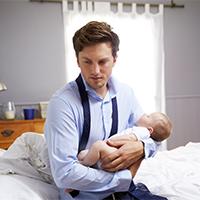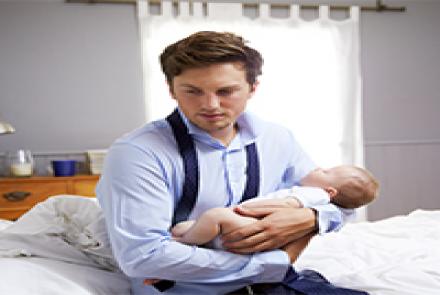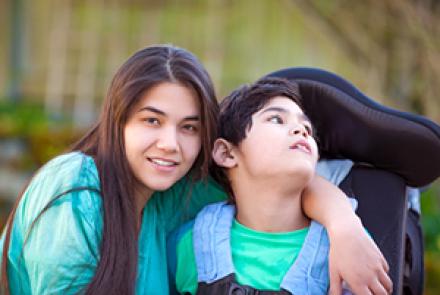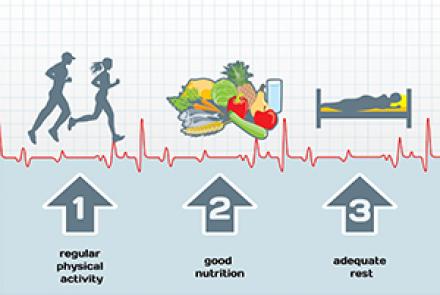
Smriti Sawhney is an experienced Clinical Psychologist who feels one should not ignore Postpartum depression signs in men as it might turn serious.
Men also have Postpartum Depression
With joint family systems no more being in vogue, new fathers these days are often happily sharing the responsibility of looking after the new mother as well as the baby along with their own professional demands. But men are also likely to go through Postpartum depression and most of them as well as their families may not even recognise the signs and symptoms as it’s not such a well-accepted fact in our culture that the birth of a child can lead to depression in either of the parents. This definitely is stressful for first time dads, specially those with less social support around them.
Research indicates that one in 10 new fathers experiences prenatal or postpartum depression, a condition long thought to affect only mothers. The men are at highest risk for depression three to six months after the birth of a child, and their depression often corresponds with depression in the mother. Pre-natal and Postpartum depression has been evident in about 10% of men. It was found that the new fathers are generally happiest during the early weeks after their baby’s birth, with depression starting in the 3-to-6-month Postpartum period and ranging between 10% and 25%.
Why do men go through PPD?
With nuclear families being the current trend, there is often a lack of support in caregiving for the mother and the new-born.
Since the new mother spends more time caregiving and bonding with the baby via breastfeeding or other caregiving activities, the new dad may actually feel left out and question his own role at this time as a father. Sharing of responsibilities and a lack of experience especially if this is the first baby for a new father, may surely lead to baby blues.
Sleepless nights, doing a fair share of home chores or trying to calm down a crying baby in the absence of the mother as she may be resting or has resumed work may also lead to increasing conflicts with the already fatigued mother. Lack of intimacy and quality time with one’s spouse may also add to the distress and frustration. There also may be an impact on one’s work life balance leading to more stress.
In fact, Postpartum depression in either partner can cause marital discord as well, because the partner suffering from depression will be easily irritated or become less communicative or may not be able to offer the support that’s needed by the other. In case of fathers with depression it definitely can lead to marital discord as the new mother herself is battling hormonal changes and providing round the clock care to the new born and expects to be attended to empathetically by her spouse. If the new father too is facing emotional disturbance at this time he may be unable to provide this loving empathetic attention, which, in turn, can lead to marital discord.
Factors responsible for PPD in men
The cases do seem to be going up. This may be because of higher number of men are now becoming aware of some stress and their seeking help for it, though they may not be able to link their stress as caused directly due to the birth of their child. The unease may not be really due to the baby around but can be attributed to:
- A change in their lifestyle as with a baby coming in to the house, there may be physical changes in the setting in the house, sleep cycle may get affected due to caregiving as well meeting professional demands and the intimacy with the spouse may take a backseat for a while
- Increased financial pressure with increased caregiving needs for the mother and the baby
- Confusion about one’s own role in looking after the baby or feeling inadequate when compared to the new mother
Tell tale signs of Post Partum Depression
Symptoms of Postpartum depression in men are similar to what women experience as Postpartum depression. The depression can be seen in signs and symptoms like poor concentration, feeling of guilt, loss of energy, lack of interest in usual activities, irritability, anxiety, sleep disturbances etc.
Red Flag signs are:
- Irritability
- Persistent sadness of mood
- Increase in substance abuse
- loss of sleep and appetite
- Anger outbursts
- Avoidance for work or caregiving needs
There have been a few drastic cases also in this respect, with suicide cases having been reported in new fathers especially after the birth of the first child.
How to counter PPD in Men
The new mother (wife) can play an important role in the prevention of depression in the new father. She can be the first one to notice any signs of emotional distress in her partner empathetically and should address the issue sensitively. Simple measures can help avoid this emotional stress:
- She can set aside an hour or two each week to spend some quality time with her partner, meet up with friends and socialise with people so as to take a break from caregiving rituals and normalise one’s own and one’s partner’s life.
- Other family members can share caregiving needs for the mother or baby with the new father to help him relax and he could also chat with other ”dads” in the family/friend circle - sharing advice, stories and feelings, learning from their experiences.
Follow a routine wherein you are following a good sleep wake cycle and eating a healthy diet and exercising for at least 20-30 minutes in a day. Make sure you have kept aside some “me myself time” in your day where you are able to sit and relax and plan further for any requirements from your side. It is always important to have an outlet for your stress. Therefore, share your emotional distress with a trusted person and in the absence of that, seek professional help before it gets too late.
Caregiving and participating in the parenting process with all your dedication is not possible if you are going through such emotional disturbances. They say 'charity begins at home'. So even as you are looking after your pregnant partner or your new born baby and the new mother, please be aware of your own emotional needs and distress.
Depression in men often goes unnoticed and can even be ascribed to fatigue. When the signs and symptoms for depression have been ignored and it becomes a diagnosable category – for example, a new father may experience sleep difficulties and sadness of mood but may not express it to others around him or his wife may not notice it and this may lead to him developing a moderate to severe depressive condition.
Post partum depression may begin with mood and behavioural changes which if identified early can be resolved quicly without it turning into a full fledged disorder. It’s a clinically meaningful event and men must be evaluated for mood disturbances along with the new mother. It responds well to medication and therapy as well as support from loved ones.
















